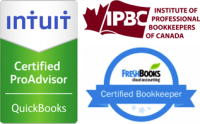
So it seems fitting that this week will be looking at the in’s and out’s of a Registered Education Savings Plan (RESP)
What is a Registered Education Savings Plan (RESP)?
An RESP is a savings account that you can set up on behalf of a child. Funds can be added to the account as often as you like however they cannot be withdrawn without penalties until the child is 18 or ready to attend a post-secondary institution. The account can remain open for a total of 36 years and when the time comes for the beneficiary to attend a post-secondary institution they are able to withdraw the funds over a period of 4 years.
When funds are withdrawn they are added to the students annual income (which quite often is low) and is taxed at the applicable rate.
Throughout the lifetime of the account the contributor remains in control and is responsible for requesting the release of the funds. If the beneficiary does not attend a post-secondary institution then the account is passed back to the contributor who can either close the account, transfer the account to a new beneficiary or transfer the funds to their RRSP.
Pro’s and Con’s
Pro- You can open an RESP and begin making contributions from the moment your child is born. This is the best time to start because even if you are only able to make small monthly contributions, those contributions have 18 years to grow. When it comes to investing, the longer the time frame the better.
The list of accredited post-secondary institutions is long and varied ranging from university & colleges to trade schools and the money can be used to cover any study related expenses.
Additionally the government will match all contributions dollar for dollar up to $2500/year. Contributors who fall into the lower income bracket are also eligible to receive a one off payment of up to $2000 of additional government funds through their Canadian Learning Bond initiative.
Cons- If the beneficiary doesn’t end up attending a post-secondary institution, or if they do not complete their education and the creator of the account decides to close it down they will have ALL OF THE INTEREST/GAINS that have been earned over the lifetime of the account added to their annual income and will be taxed accordingly. This transfer of ownership will occur after the account has been open for 36 years.
Additionally if you close the account you must pay back any government grants and if the account has been open for less than 10 years at the time of the closure you will lose all of your gains.
Who is a good candidate for an RESP?
Who should invest: EVERYONE who has a child.
If you are in a lower income bracket and wonder which is more beneficial: contributing to RRSP’s or RESP’s, we would recommend a regular RESP contribution. With an RESP you receive government contributions of up to $2500 per year. The government is never quick to give away money so you might as well make the most of their offers while you can!!
Who is not necessarily a good candidate for an RESP?
Well this may seem like a pretty obvious statement but if you don’t have a child then this isn’t the account for you!
Personal tip from Teya
Until your child is around 10 years old, you can afford to be risky with the type of investments you choose for your RESP. My son and nephew who are only 2 years old each have close to 2 years worth of university tuition in their RESP accounts. This is a result of some truly incredible gains on speculative stocks (there were big losses too, but the accounts are up almost 300%!)
Some people call me foolish for investing in high risk stocks, but with the right broker, the right time frame and the right state of mind, you can make incredible gains.
That said you need to do your research before investing in any specific RESP group funded plan. There are many plans with strict conditions and failure to read this fine print can result in you losing your investment.
We recommend going to an INDEPENDENT investment adviser who will have your best interests in mind rather than someone who works for a bank or specific fund, as their focus is to sell you a product.
If you need advice on RESP’s or anything tax related please contact us.

